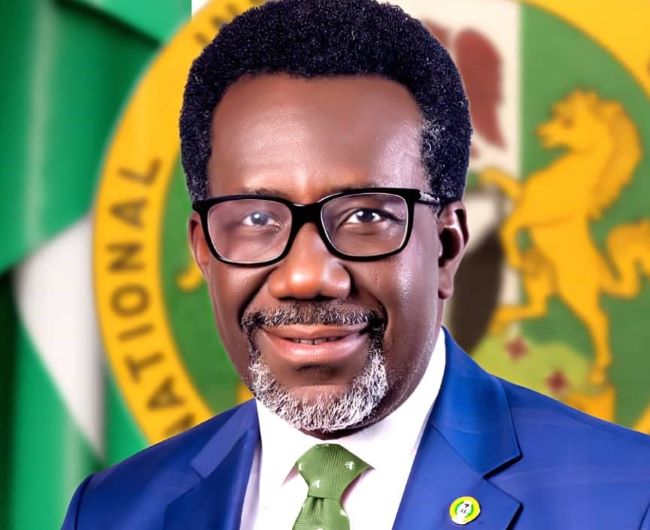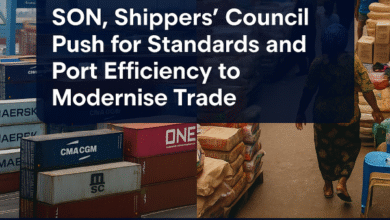Nigeria Courts $25bn in Game-Changing Gas Pipeline Deal with Vitol as Europe Seeks Alternative Supply Lines

In what could be one of the most ambitious infrastructure undertakings in Africa’s energy sector, Nigeria has reignited momentum behind the $25 billion Nigeria-Morocco undersea gas pipelin, seeking strategic collaboration with global energy trading giant, Vitol Group.
Vice-President Kashim Shettima, speaking during a high-stakes engagement with Vitol executives at the Presidential Villa in Abuja on Monday, described the project as a geopolitical and economic game-changer that could redefine Nigeria’s role in global gas supply.
“This is no longer just about exports,” Shettima said. “It is about Nigeria positioning itself as a central pivot in the global energy transition — and we have the leadership, resources, and reforms to back it up.”
A Pipeline of Opportunity: From Nigeria to Europe via Morocco
At the heart of the discussions is the Nigeria-Morocco Gas Pipeline, a transcontinental infrastructure spanning the West African coastline and ultimately connecting to Europe — a continent aggressively seeking to diversify away from Russian gas dependency post-Ukraine crisis.
The project, first conceptualised in 2016, has gathered renewed urgency under President Bola Tinubu, whose economic reforms — including fuel subsidy removal, forex unification, and sweeping fiscal adjustments — are sending strong signals to global capital.
Shettima’s remarks underscored the administration’s resolve to provide not just policy clarity but strategic alignment between Nigeria’s vast natural gas potential and international energy demand.
“President Tinubu is not only a reformer; he understands energy markets. He’s creating the right environment for transformative investment,” the Vice President noted.
From Oil Nation to Gas Powerhouse
In a sharp repositioning of narrative, Shettima declared that “Nigeria is a gas economy, not an oil one.” With proven reserves of over 200 trillion cubic feet (TCF) — the eighth largest in the world — Nigeria is turning its gaze to the blue flame as both a revenue booster and a bridge fuel for global decarbonisation.
The Vice President particularly pointed to the Nigeria LNG (NLNG) model as an example of how reduced government interference and sound corporate governance can yield consistent, bankable returns.
“NLNG remains one of our most reliable revenue-generating assets. It’s the reason we believe the gas pipeline will succeed — commercially and geopolitically,” Shettima told the Vitol delegation.
What Vitol Brings to the Table
For Vitol — the world’s largest independent energy trader — Nigeria is familiar terrain. The company’s long-standing involvement in Nigeria’s downstream and finance sectors, including Project Gazelle (a $300 million financing facility during the COVID-19 crisis), has earned it trusted-partner status among top government officials.
Vitol’s CFO Jeffrey Dellapina reaffirmed this relationship, stating:
“Nigeria remains a core partner in our global portfolio. We’re ready to expand our commitments, especially in gas infrastructure.”
Vitol’s Nigeria Country Manager, Thomas de Montulé, and Head of Public Affairs, Murtala Baloni, echoed that sentiment, noting that the company’s edge lies not just in capital, but also in technical expertise, logistics orchestration, and market access.
“Our network is global. Our execution is local. We see the Nigeria-Morocco pipeline as a project of strategic alignment with Europe’s energy future,” Baloni said.
Beyond Financing: Strategic Alignment with Global Trends
While the $25 billion price tag is formidable, Shettima emphasised that technical expertise and project discipline may be more valuable than money alone.
“We’re not just asking for capital. We’re asking for a partner that understands how to deliver world-class infrastructure with transparency, precision, and scale,” he said.
This aligns with a broader trend of energy de-risking, where countries like Nigeria are leaning on trusted global players to deliver projects that can attract multilateral backing — especially from institutions such as the Africa Finance Corporation (AFC), the African Development Bank (AfDB), and the European Investment Bank (EIB).
What’s Next?
With rising European demand for diversified gas supply chains, and Africa’s untapped potential sitting on a tectonic reserve base, the Nigeria-Morocco pipeline is more than a regional play — it is a continental reassertion.
For Nigeria, the success of this project will not only reshape its export profile, but also catalyse gas-based industrialisation domestically — from fertiliser and methanol plants to cleaner power generation and petrochemical corridors.
As Vitol considers ramping up its involvement, the global energy community is watching closely: Will Nigeria finally unlock the full value of its gas wealth — not just as a commodity, but as leverage in the new energy diplomacy?
“This is where the action is,” Shettima concluded. “Invest in Nigeria’s gas. The returns won’t just be financial — they’ll be transformational.”
BRANDECONOMY INSIGHT:
With Europe accelerating its energy transition and seeking reliable non-Russian gas sources, Nigeria’s diplomatic and commercial pivot toward large-scale gas infrastructure offers a timely opportunity. The key, however, will lie in execution discipline, stakeholder alignment, and transparent governance.











